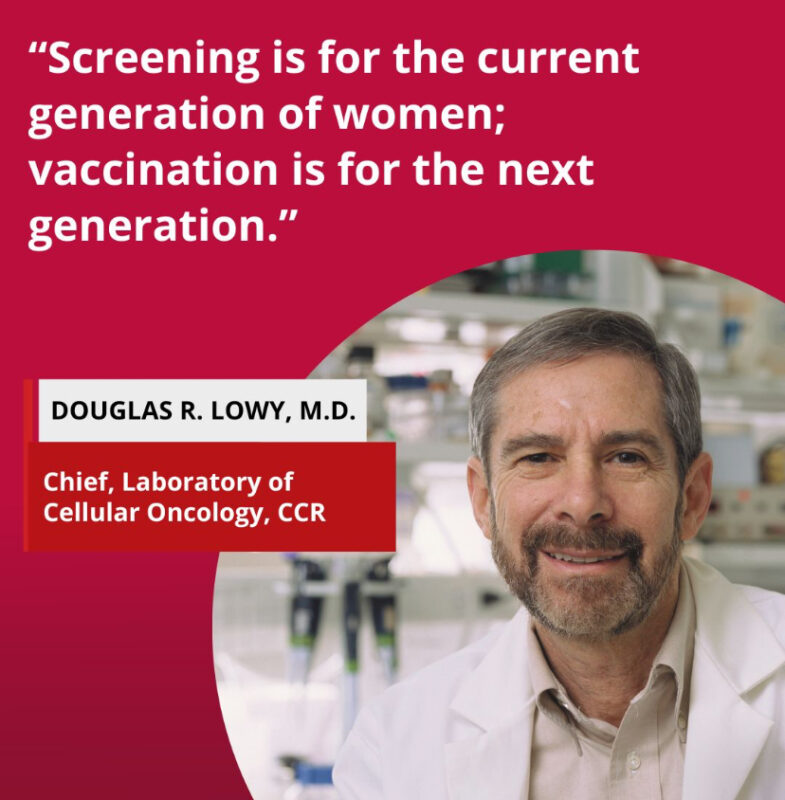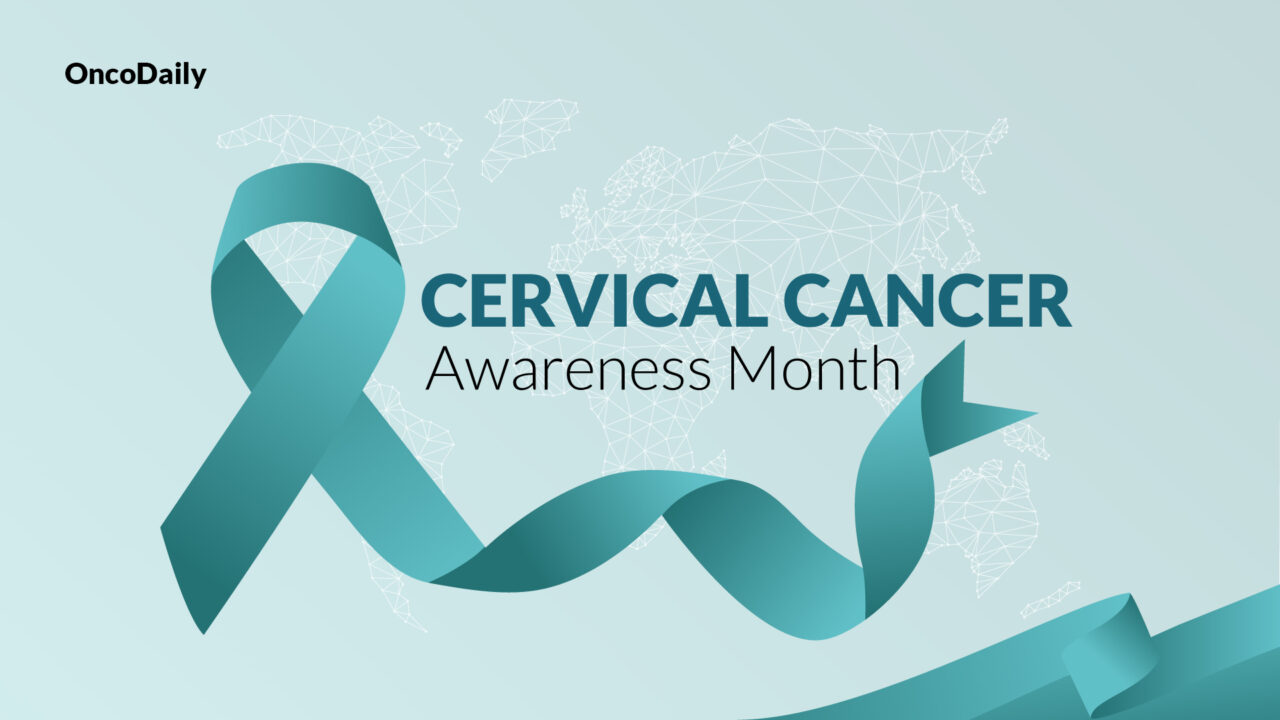January is Cervical Cancer Awareness Month, a crucial time to raise awareness about cervical cancer, its prevention, and the importance of early detection.
Cervical cancer is the fourth most common cancer in women globally with around 660 000 new cases and around 350 000 deaths in 2022. In the European Union, cervical cancer ranks as the second most common cancer among women aged 15-44, with around 33,000 cases reported annually
Cervical cancer is characterized by the abnormal growth of cells in the cervix, which is the lower part of the uterus that connects to the vagina. The primary cause of most cervical cancers is persistent infection with certain high-risk strains of the human papillomavirus (HPV). HPV is a prevalent virus transmitted through sexual contact. While the immune system usually clears the virus, in some individuals, it can persist for years, leading to changes in cervical cells that may develop into cancer.
To reduce the risk of cervical cancer, regular screening tests and HPV vaccinations are recommended. When cervical cancer is diagnosed, treatment often begins with surgery to remove the cancerous tissue. Additional treatments may include chemotherapy, targeted therapies, and radiation therapy, sometimes used in combination with chemotherapy.
Symptoms of Cervical Cancer
Symptoms of cervical cancer may not be evident in the early stages but can include:
- Abnormal vaginal bleeding: This may occur between periods, after intercourse, or after menopause.
- Pelvic pain: Discomfort or pain in the pelvic area that is not related to menstruation.
- Pain during sexual intercourse: Discomfort or pain during sexual activity.
- Unusual vaginal discharge: This may be watery, pink, or foul-smelling.
Early detection through regular screenings can significantly improve treatment outcomes and survival rates.
Importance of Cervical Cancer Awareness Month
- Focus on Prevention: Cervical cancer is largely preventable through vaccination against the human papillomavirus (HPV), which is responsible for nearly all cases of cervical cancer. Vaccination is recommended for girls aged 9 to 14, ideally before they become sexually active.
- Screening Recommendations: Regular cervical screening (Pap tests) is essential for early detection. Women aged 30 and older should begin screening, with intervals based on age and health history: every three years for ages 25-49 and every five years for ages 50-64.
- Education and Advocacy: Organizations encourage individuals to educate themselves and others about cervical health, the risks associated with HPV, and the importance of screenings and vaccinations
Call to Action
During Cervical Cancer Awareness Month, individuals are encouraged to:
- Get Informed: Learn about HPV and cervical cancer symptoms.
- Get Screened: Attend regular cervical screening appointments.
- Get Vaccinated: Ensure vaccination against HPV for eligible individuals.
By participating in Cervical Cancer Awareness Month, everyone can contribute to reducing the incidence of this preventable disease through education, vaccination, and regular health screenings.
Community around cervical cancer were dedicated in raising awareness during this month. Do not miss the highlights picked by OncoDaily.
“New draft recommendations from the U.S. Preventive Services Task Force add self-collected HPV tests in its recommendation—an action the Panel called for in its 2022 report to facilitate equitable access to cervical cancer screenings. Read more.”
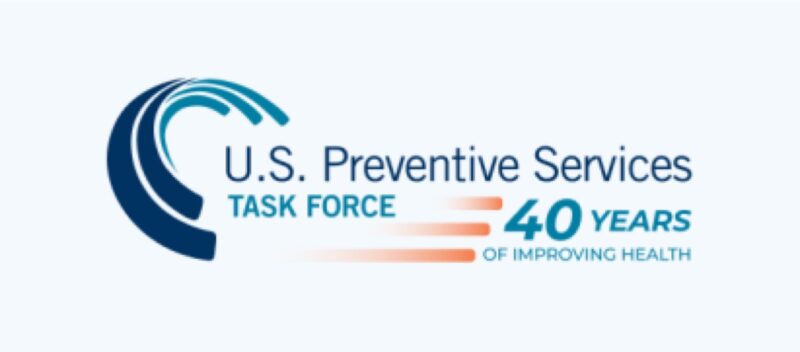
WHO Regional Office for the Eastern Mediterranean:
“Cervical cancer can be cured if diagnosed early and treated promptly.
Here are 3 steps to keep safe from Cervical Cancer:
1. Get informed
2. Get screened
3. Get vaccinated
Follow this thread to learn more.
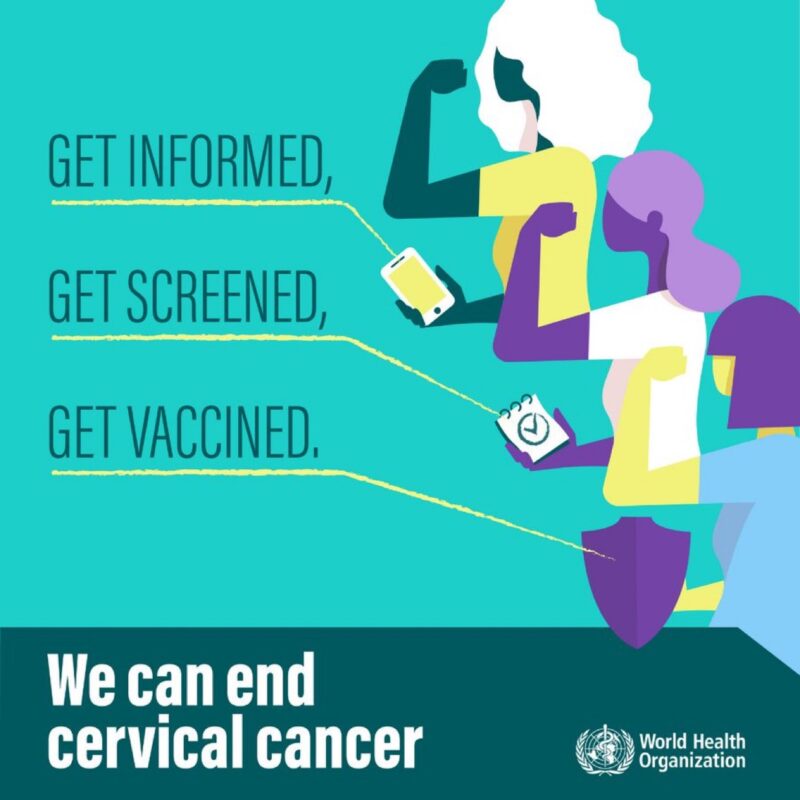
1. Get informed:
Educate yourself and other women about Cervical Cancer and human papillomavirus (HPV) which causes 99% of cases.
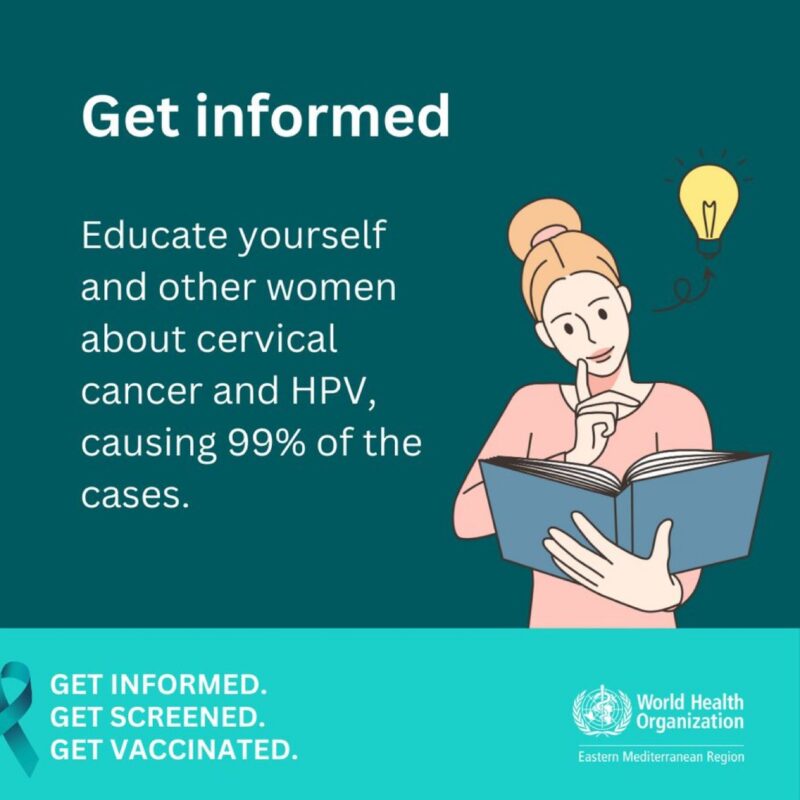
2. Get screened:
Regular screenings can detect cervical changes and help protect you from developing cancer.
Women are advised to get screened for cervical cancer every 5–10 years, starting at age 30.
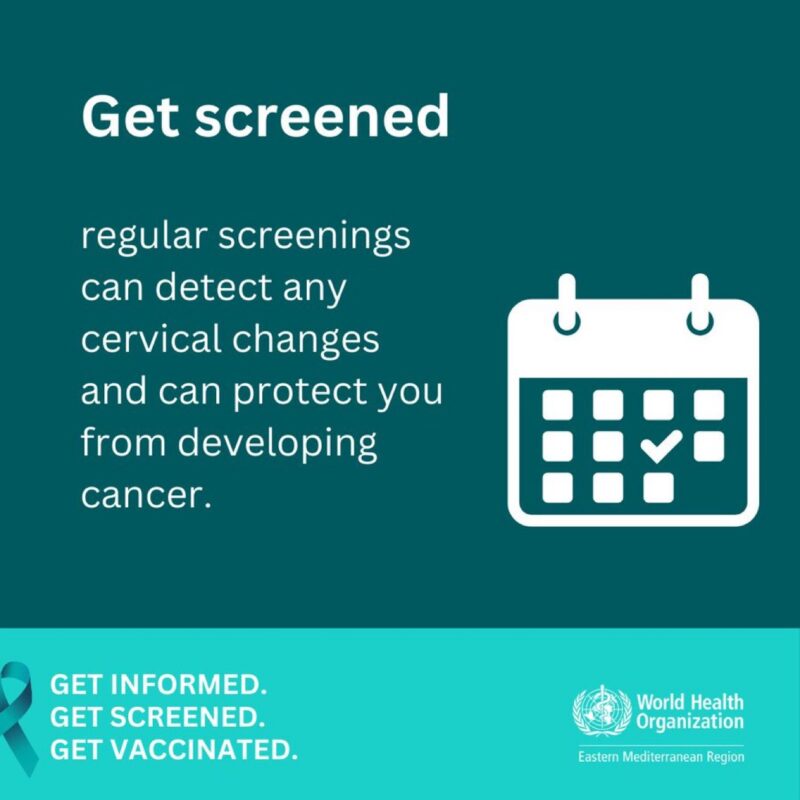
3. Get vaccinated:
99% of Cervical Cancer cases are caused by the human papillomavirus (HPV).
Girls between 9 and 14 years should receive one dose of an HPV vaccine.
6 HPV vaccines are available globally.”
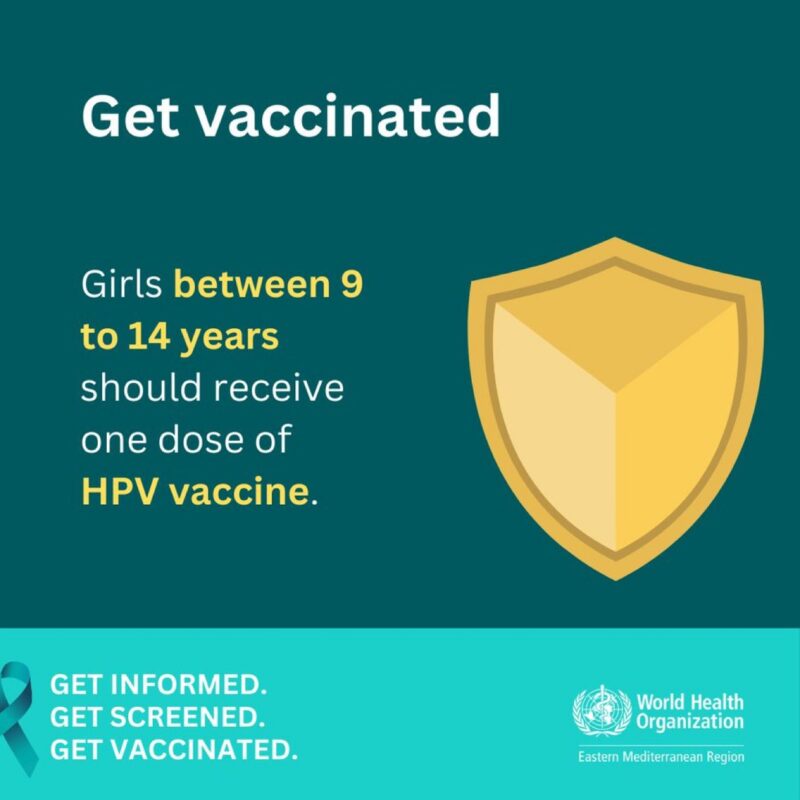
“Cervical cancer is the first cancer we can eliminate for good – but are we on the right track? At Union for International Cancer Control (UICC)’s 2024 World Cancer Congress, I joined a session organized by TogetHER for Health The Commonwealth and Roche to discuss the notion: “Have you noticed that we hear less and less about the elimination of cervical cancer and more about HPV vaccination as a standalone intervention?”
While the global focus on HPV vaccination has made remarkable progress—coverage rose from 16% in 2021 to 27% in 2023—the same urgency has not been applied to screening and treatment.
In Africa, where over 70% of the global cervical cancer burden exists, this imbalance is more glaring.
Retrospective data clearly shows that without equal attention to all three pillars—as stated in the WHO global cervical cancer elimination strategy—millions of women remain at risk of developing cervical cancer. Happily, Rwanda is taking the lead on the continent.
Following the roundtable, the policy paper released-“Strengthening the Pathway to Cervical Cancer Elimination”, which builds on this discussion by acknowledging cervical cancer as a global health priority, highlighting advances in prevention and treatment, endorsing a holistic approach, addressing access challenges, and exploring the potential of digital technology in cervical cancer programs.
It also features case studies of innovative elimination strategies and offers actionable recommendations for policymakers. Honoured to have contributed the Nigerian experience to this body of work.
This report is a vital step toward ensuring no woman dies from cervical cancer. I encourage you to read it here.”
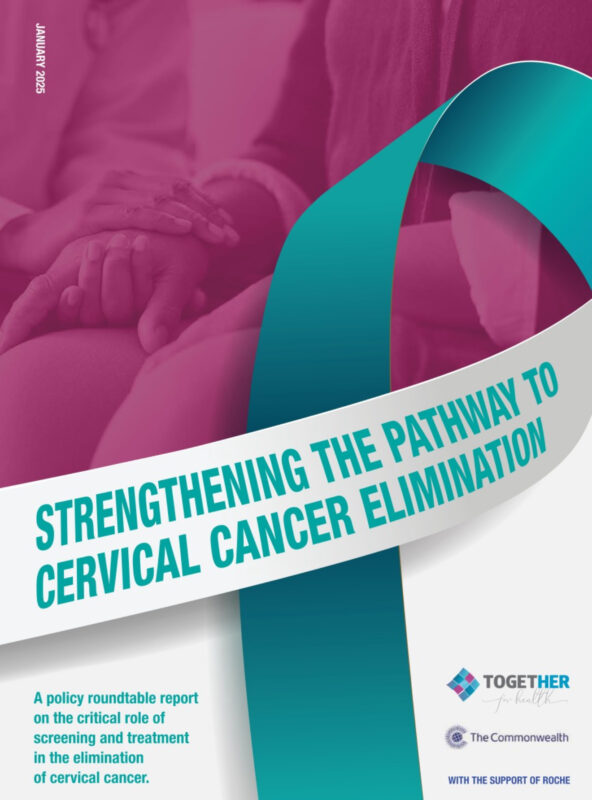
State Representative Maura Hirschauer:
“Cervical cancer affects thousands of people and their families each year. You can greatly reduce your risk by receiving the HPV vaccine and getting regular pap smears.
The Illinois Breast and Cervical Cancer Program offers access to pap smears, mammograms and other services.”
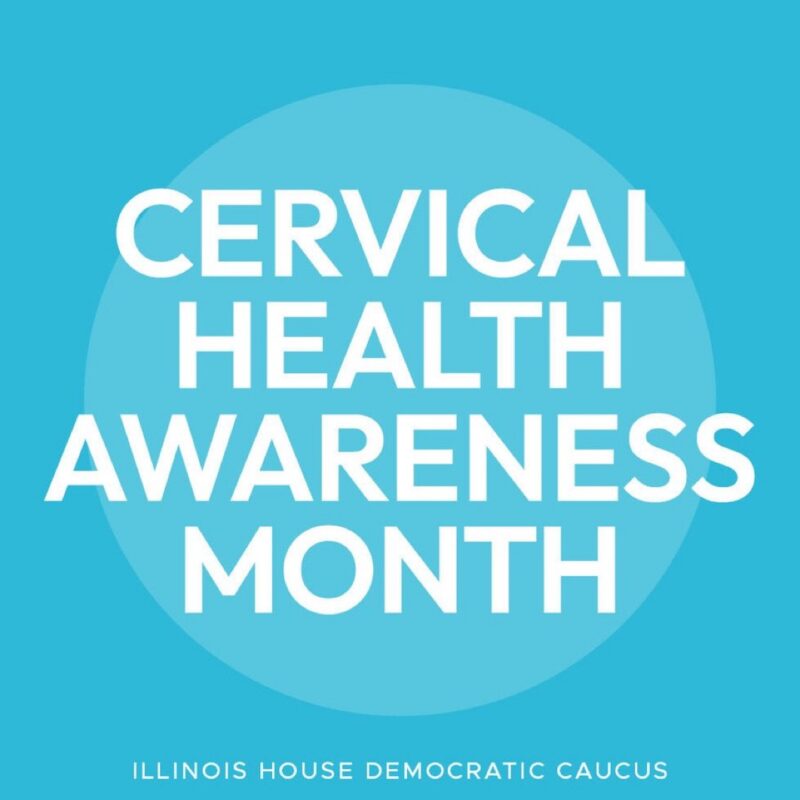
“A shot towards preventing cervical cancer.
These young girls are receiving the Human Papillomavirus (HPV) vaccine at their school in Lao PDR.
Do you know what the link is between HPV and cervical cancer? Find out here.”
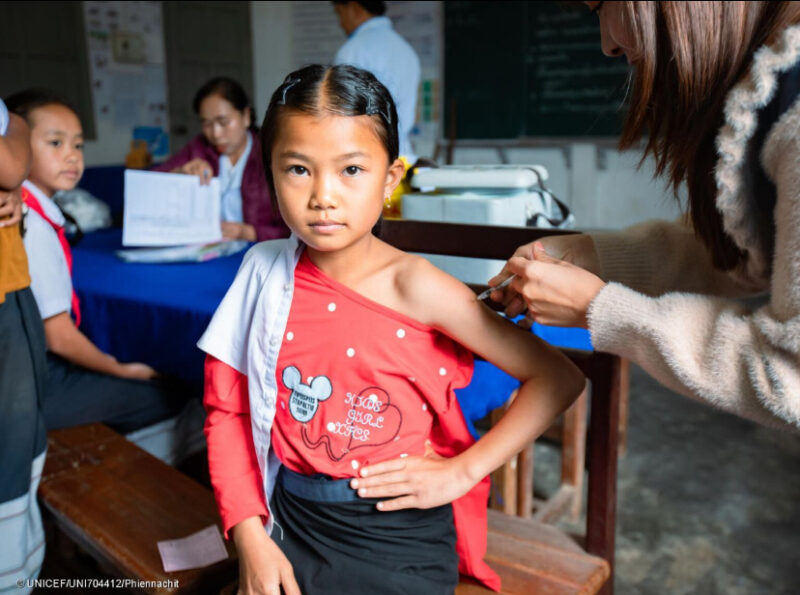
“In 2024, there were about 13,820 new cases of Cervical Cancer in the US. This represents 0.7% of all cancer diagnoses last year. Visit our Cancer Stat Facts sheet to learn more.”
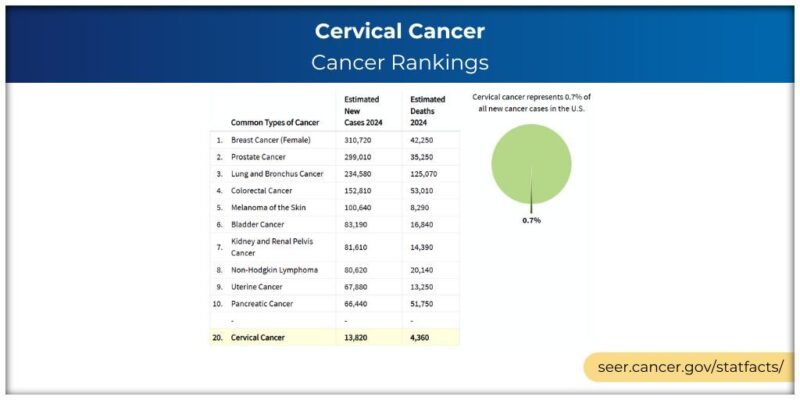
“January is Cervical Cancer Awareness Month.
Every year, our nation loses about 4,000 women to cervical cancer. We owe it to survivors, their families, and the loved ones we’ve lost to redouble our focus on research and development of treatment, prevention, and a cure.”
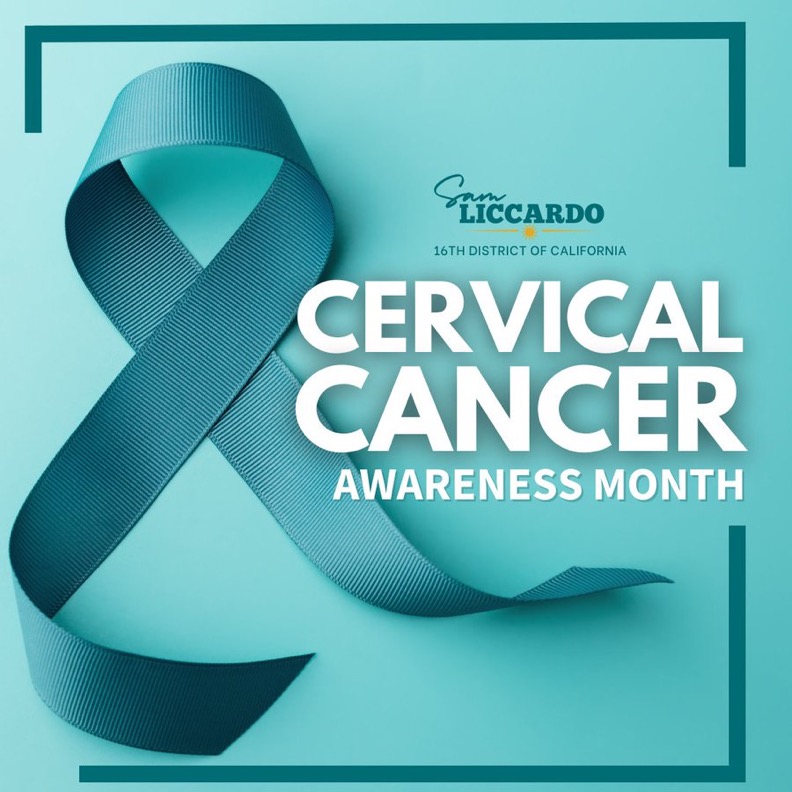
“Misinformation and stigma are major barriers for preventing, screening and testing for cervical cancer. In Rwanda, nurse Balinda is helping women overcome these hurdles and raising awareness about the importance of prevention through vaccination.”
National Cancer Institute of Kenya (NCI-Kenya):
“January is Cervical Cancer Awareness Month. It is a perfect opportunity for us, partners, and everyone to raise awareness about cervical cancer and HPV vaccination.
Current estimates indicate that every year 5,236 women are diagnosed with cervical cancer.
3,211 died from the disease in Kenya. The disease is preventable with vaccination and appropriate screening.”
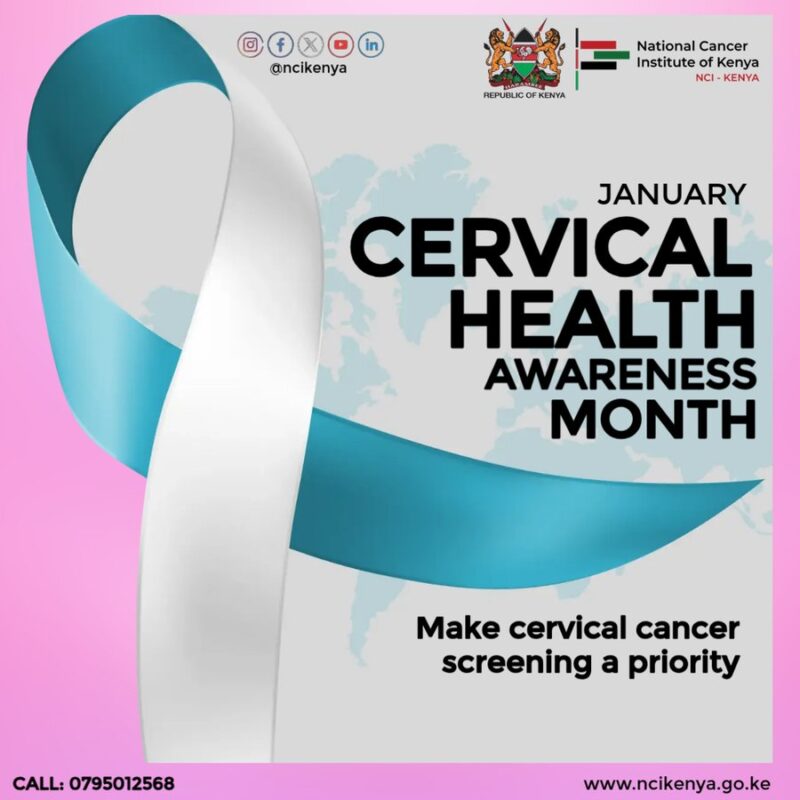
“January is Cervical Health Awareness Month. HRSA and the Federal Cervical Cancer Collaborative have two toolkits to help health centers improve equitable Cervical Cancer prevention, screening, and management. Learn more.”
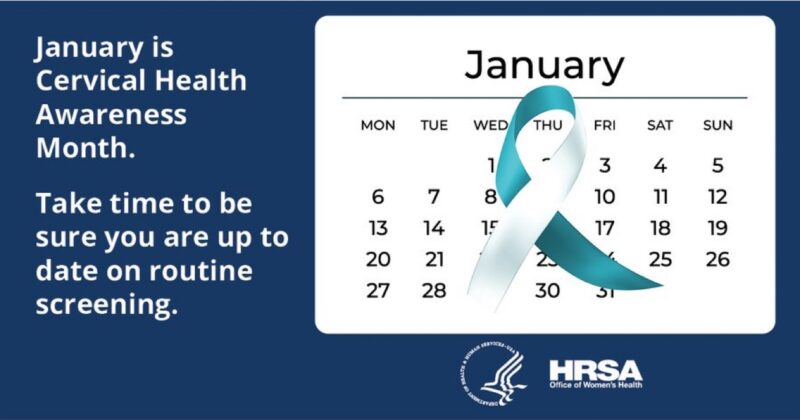
“Hello, 2025! As we kick off Cervical Cancer Awareness Month, it’s inspiring to reflect on the tremendous progress we’ve made in reducing the impact of this cancer type. Thanks to groundbreaking advances in science – particularly development of the HPV vaccine – cervical cancer incidence and mortality are in steep decline, especially among women under 25. Prevention works!
However, the fight isn’t over. Regular testing remains essential for early detection and better outcomes. A late-breaking 2024 study from Sweden provided powerful evidence that HPV-based screening is superior to traditional cytology screening methods in preventing invasive cervical cancer in real-world settings. The findings are stunning and underscore the importance of continued innovation in screening technologies.
Can’t wait to see what 2025 will bring as we stand on the brink of ending cervical cancer as we know it. Let’s continue to raise awareness, champion prevention, and work toward a future where cervical cancer is a thing of the past.”
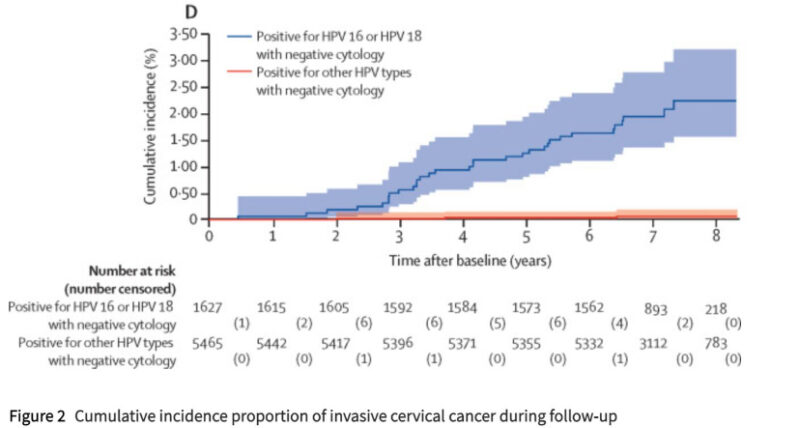
“For many years, Cancerfonden has been dedicated to supporting Sweden’s efforts to eliminate cervical cancer through vaccination and screening.
Sweden’s progress is a powerful example of what can be achieved when governments, communities, and organisations join forces. In 2024, several impactful initiatives were launched to boost vaccination uptake, with strong partnerships and a multisectoral approach playing a key role.
However, the global challenge remains. 90% of cervical cancer cases occur in low- and middle-income countries, where access to screening, early detection, and treatment is still limited. Greater political commitment and international collaboration will be crucial to meeting the WHO’s 2030 cervical cancer elimination targets.
Learn more about Sweden’s journey to eliminate cervical cancer.”
“Let this be the year you put yourself (and your health) first. Learn from Prevent Cancer Foundation how the HPV vaccine and cervical cancer screening can lead to Better Outcomes.”
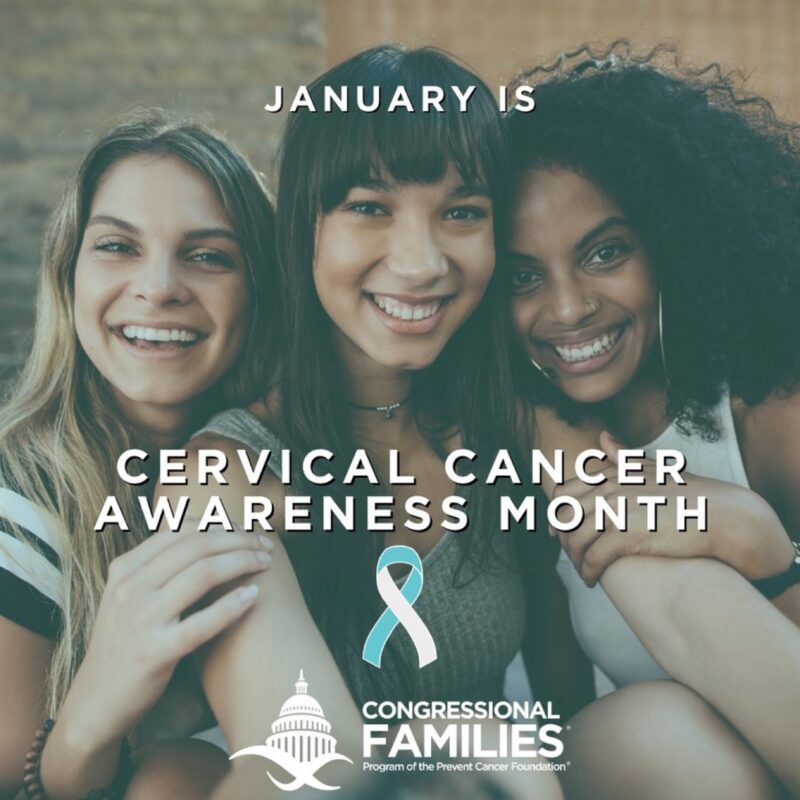
“‘Cervical Cancer is leaving us with 1 million orphans a year. Women in many families are the breadwinners and the caregivers. Empowering women with information and making them more capable of making decisions about their health is a way forward.”
In a new episode of ‘Getting to Zero’ premiering next Thursday, Dr. Zainab Shinkafi-Bagudu, president-elect of the Union for International Cancer Control (UICC), talks solutions to Prevent HPV and End Cervical Cancer and other Womens Cancers.
Subscribe to be among the first to watch.”
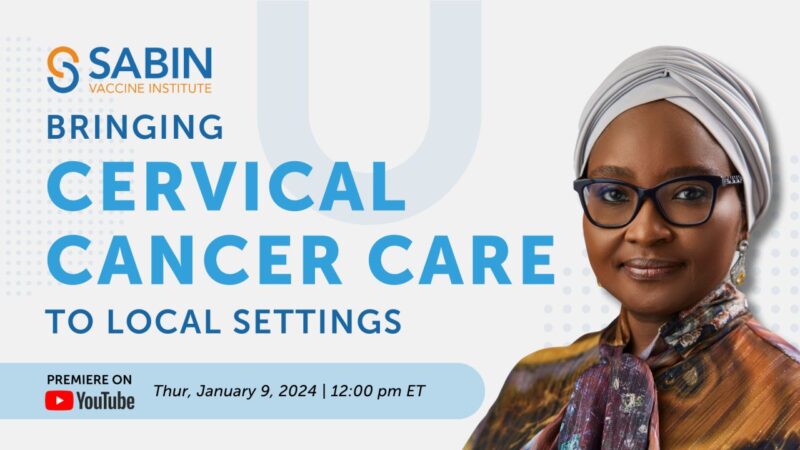
IARC:
“The main cause of Cervical Cancer is persistent infection with high-risk types of HPV.
IARC research shows that a single dose of HPV vaccine offers robust protection against persistent infection even 15 years after vaccination.”
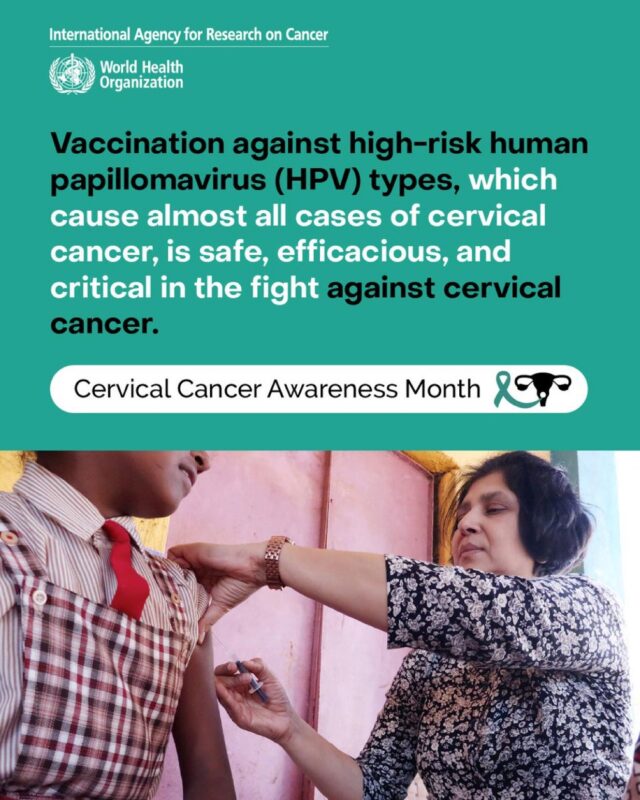
“January is Cervical Cancer Awareness Month.
Cervical Cancer is one of the most successfully treatable forms of cancer when detected early & managed effectively.
Yet, this preventable disease claims the lives of 76,000 women in the African region every year.
We can protect the next generation of women by accelerating HPV vaccination rates, increasing access to prevention, screening and treatment services.
I urge governments and partners to prioritize these life-saving measures, ensuring women and girls everywhere can access the care they need.”
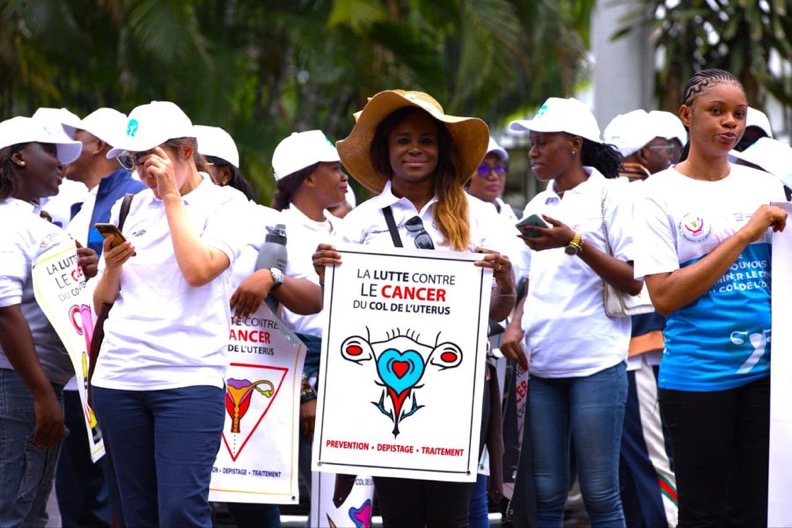
“This Cervical Cancer Awareness Month I’m paying tribute to the dedicated health workers supporting cervical cancer patients by dispelling myths and tackling stigmas. This powerful read from Rwanda highlights the impact of this support.”
“Cervical cancer can be prevented by getting vaccinated against HPV, having regular cervical cancer screening, and ensuring timely follow-up treatment. The success of cervical cancer treatment largely depends on early detection.
So, when is the appropriate time for women to start screening, and how does the approach to screening evolve as we age?
Although women need to consult with their healthcare providers to determine the most appropriate screening based upon their personal health history and risk factors, here are the current general guidelines as recommended by American College of Obstetricians and Gynecologists (ACOG):
– Age 21 to 29 years, the Pap smear every three years
– Age 30 to 65 years, Pap smear every three years, HPV testing every five years, or Pap smear and HPV testing every five years
– After 65 years, screening is discontinued if there is no history of high-grade lesions or cancer and there have been adequate negative screenings.”
NFCR:
“January is Cervical Cancer Awareness Month.
Cervical cancer affects thousands of women every year. In the U.S. alone, it’s estimated that 13,820 new cases of invasive cervical cancer will be diagnosed, and 4,360 women will lose their lives to this disease.
Early detection saves lives! Regular screenings like Pap smears and HPV tests, combined with vaccination against HPV, are powerful tools to reduce these numbers. Let’s work together to spread awareness and promote prevention.
Learn more about cervical cancer prevention and support life-saving research with the National Foundation for Cancer Research.”
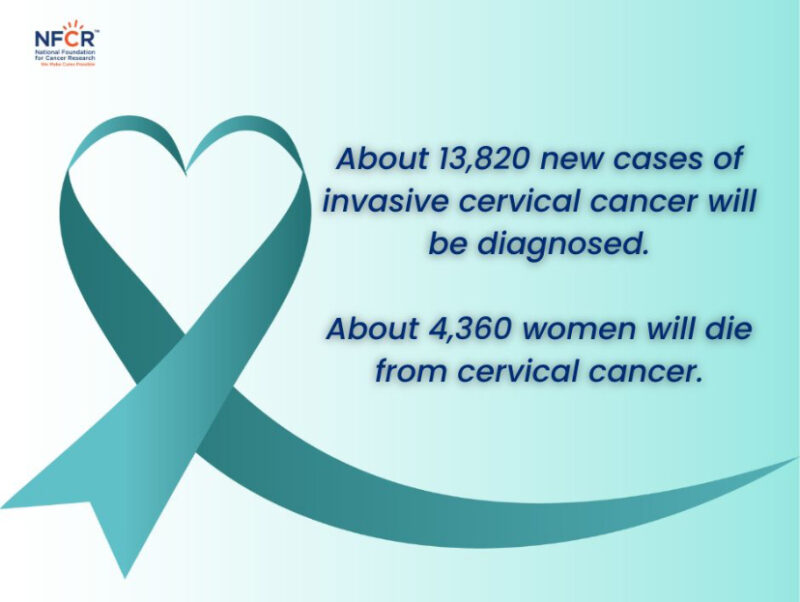
“Did you know the HPV vaccine can help prevent cervical cancer? Make sure your child gets vaccinated to protect them. Learn more about the vaccine and schedule a visit today.”
“January is Cervical Cancer Screening Month – a vital reminder to prioritize your health. Early detection through regular screenings saves lives and improves outcomes. At Prescription Hope, we’re here to support your health journey by providing affordable access to life-saving medications for just $60 per month per medication.
Take charge of your health this month and spread awareness about the importance of cervical cancer screening.”
“January is Cervical Cancer Awareness Month, a time to focus on prevention and early detection. Cervical cancer is one of at least 6 types of cancer that are highly preventable thanks to HPV vaccination.
Raising awareness and encouraging more accessible screening and vaccination measures are crucial, and it’s the focus of the first South East Europe Conference on HPV.
Join us online or in Sofia!
Date and time: 23 January 2023, 14:00 – 19:00 EET
Register today to secure your place.
In partnership with Patient Portal and Coalition HPV
Bulgarian support team: PR Care.”
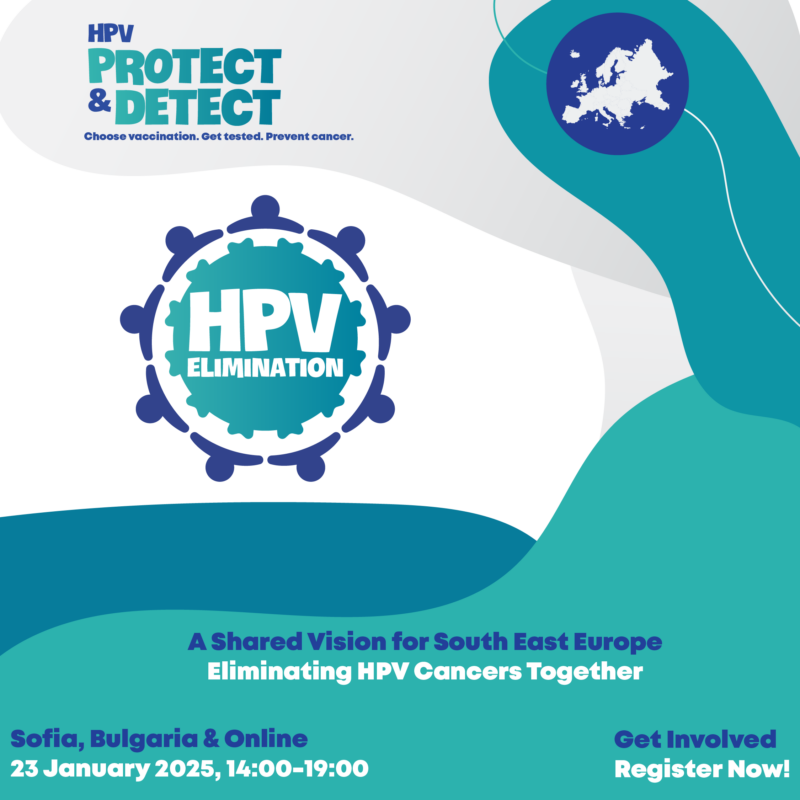
“January is Cervical Cancer Awareness Month!
Cervical cancer is preventable and treatable when detected early, yet it remains a significant health challenge for women worldwide. Together, we can raise awareness, share knowledge, and save lives.
Here’s how you can make a difference:
– Get Screened: Regular Pap smears and HPV testing can catch abnormal changes early.
– Get Vaccinated: The HPV vaccine is a powerful tool in preventing cervical cancer.
– Educate Others: Talk to your loved ones about the importance of prevention and early detection.
– Practice Healthy Habits: A strong immune system can help reduce the risk of HPV infections.
Ladies, your health matters. Take charge of your well-being this month and beyond. Let’s stand together to eliminate cervical cancer!”
“Together, we can grow closer to a world without cervical cancer.
This January, in honor of Cervical Cancer Awareness Month, let’s take action!
In Thailand, approximately 4,705 women lose their lives annually to preventable cervical cancer, often caused by HPV. Early screening is crucial in preventing these deaths.
According to the 2025 Roche Diagnostics APAC Women’s Health Survey, 33% of Thai women have not had a cervical screening and do not plan to do so. Additionally, 34% of those who have not undergone screening assume their health is fine, reflecting a common misconception that screening isn’t necessary without symptoms.
For the health and well-being of our mothers, daughters, sisters, friends, and loved ones, these facts are unacceptable. But together, we can change them.
With every HPV test, we can grow closer to a world without cervical cancer. Book yours today! Together, we can make a difference!
The survey was conducted in October 2024 across eight markets: Singapore, Hong Kong, India, Japan, South Korea, Thailand, Taiwan and Vietnam.”
“January is Cervical Cancer Awareness Month, a time to raise awareness about prevention, early detection & treatment. Regular screenings are vital for catching cervical cancer early when it’s most treatable. Let’s work to spread awareness and save lives.”
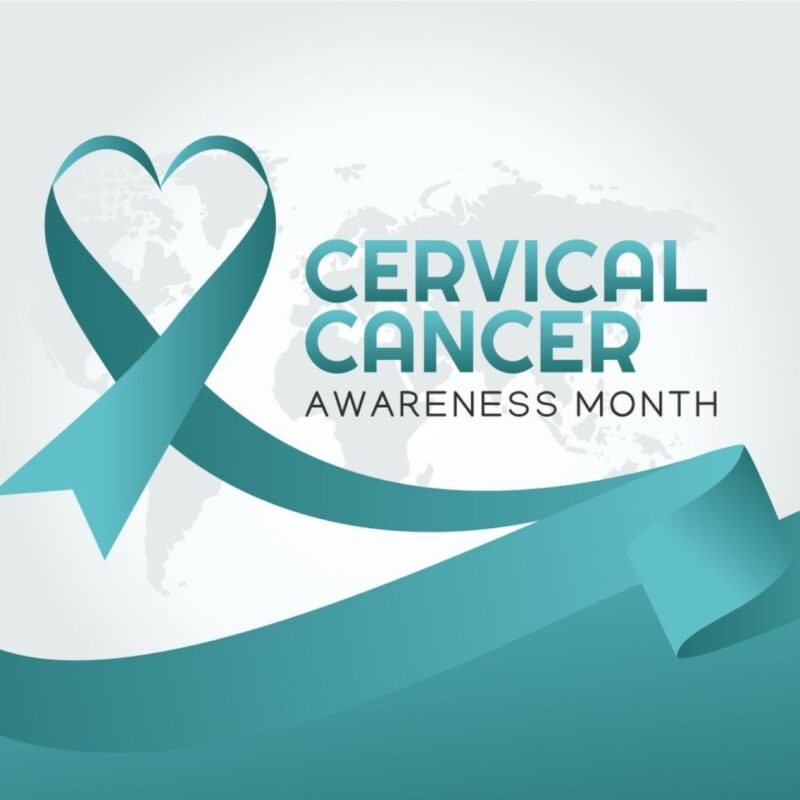
Noelle (Noelle Gillette) Cloven:
“As we welcome 2025, I’m reflecting on the power of prevention, progress, and hope.
Every year, Cervical Cancer Awareness Month reminds us of how far we’ve come in the fight against cervical cancer and how much further we can go. Advances in immunotherapy, clinical trials, and surgical techniques are transforming outcomes for women everywhere.
Let’s start the year by prioritizing health: schedule your screenings, learn about prevention, and share the importance of early detection with those you love. Read more in my latest article with Sarah Cannon Research Institute in exploring the progress we’ve made and the steps we can all take to make a difference.
At SCRI and Texas Oncology, we are working to bridge those gaps. Our network brings clinical trials and cutting-edge care into communities, ensuring that patients don’t have to travel far to access advanced treatments. These trials are not a last resort—they offer patients hope at every stage of their journey.
Our work spans every stage of cervical cancer care, from early detection to advanced therapies. Some of the advancements I’m most proud to be part of, to date, include:
Bringing care closer to home: SCRI’s community-based clinical trials ensure that groundbreaking treatments are accessible to women in underserved areas. By bringing state-of-the-art care to local communities, we reduce the burden on patients, making life-saving treatments more accessible and equitable.
Earlier detection with smarter strategies: Trials like the Robotic Versus Open Hysterectomy Surgery in Cervix Cancer (ROCC) trial (GOG-3043) are reshaping how we approach cervical cancer surgery.
The ROCC trial focuses on evaluating novel approaches for women recently diagnosed with cervical cancer, addressing critical gaps in treatment options. By prioritizing these innovative strategies, we aim to provide women with improved outcomes and faster recovery.
Expanding hope with advanced therapies: Immunotherapy and, more recently, antibody-drug conjugates (ADCs) have transformed treatment options for women with locally advanced and metastatic cervical cancer.
For example, the Trop-2 ADC Sacituzumab Cervical Cancer trial (GOG-3101) is exploring a targeted approach uses ADCs to deliver cytotoxic drugs directly to cancer cells while minimizing damage to healthy tissue.
This trial exemplifies how ADCs enhance precision in cancer treatment, potentially improving tumor response rates, reducing side effects, and extending survival for women with advanced, treatment-resistant cervical cancer.
Redefining the standard of care: The KEYNOTE-A18 trial (GOG-3047) has changed the standard of care for women with locally advanced cervical cancer.
By integrating immunotherapy into frontline treatment, this trial has demonstrated significant progress in improving outcomes for women facing this challenging diagnosis.
Every day, I walk into my clinic with a sense of purpose—a deep commitment to making a difference in the lives of women facing cervical cancer.
Some days, that difference comes in the form of a simple yet reassuring conversation during a routine screening. Other days, it’s offering hope through a groundbreaking clinical trial that could change a patient’s life.
This Cervical Cancer Awareness Month, I hope we can all reflect on the power of prevention and progress. Each clinical trial we conduct, each patient we care for, and each breakthrough we achieve moves us closer to a world where cervical cancer no longer takes such a toll on women and their families.
At SCRI and Texas Oncology, we’re proud to lead that charge, knowing that every step forward has the power to change a life.
This new year, I encourage all women to prioritize their health. Schedule your screenings. Stay informed about your options. And remember, cervical cancer is preventable and treatable when caught early. If you’re unsure about symptoms or care, don’t hesitate to reach out to your healthcare provider. Early detection remains one of our most powerful tools.
As we move into 2025, it’s an opportunity to recommit to progress. I am confident that we will continue to drive research that not only saves lives but also improves the quality of those lives. Together, we can make this year a brighter one for women everywhere.”
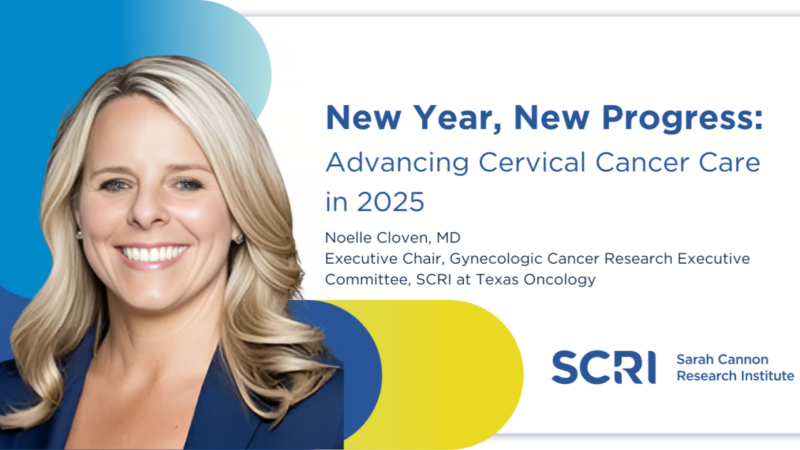
The V Foundation for Cancer Research:
“HPV is the cause of almost all cervical cancers. Our researcher, Dr. Stephanie Sullivan, shares her work to personalize treatments for cervical cancer.”
“Its cervical cancer awareness month. We understand that it can be difficult to access cervical screening for many reasons, especially if you have experienced sexual violence.
We have worked closely with survivors and Very Important Invitation to develop a toolkit for survivors.
If you would like to know how we could support you, please contact us at sgpfed.suffolkiris@nhs.net or you can refer into us by www.irisrefer.co.uk
Very important invitation offer accessible appointments at various locations. The team have also completed their trauma informed training with Iris Suffolk so understand how trauma can affect people, especially when it comes to cervical screening.
If you have any questions please get in contact and please share if you can.”
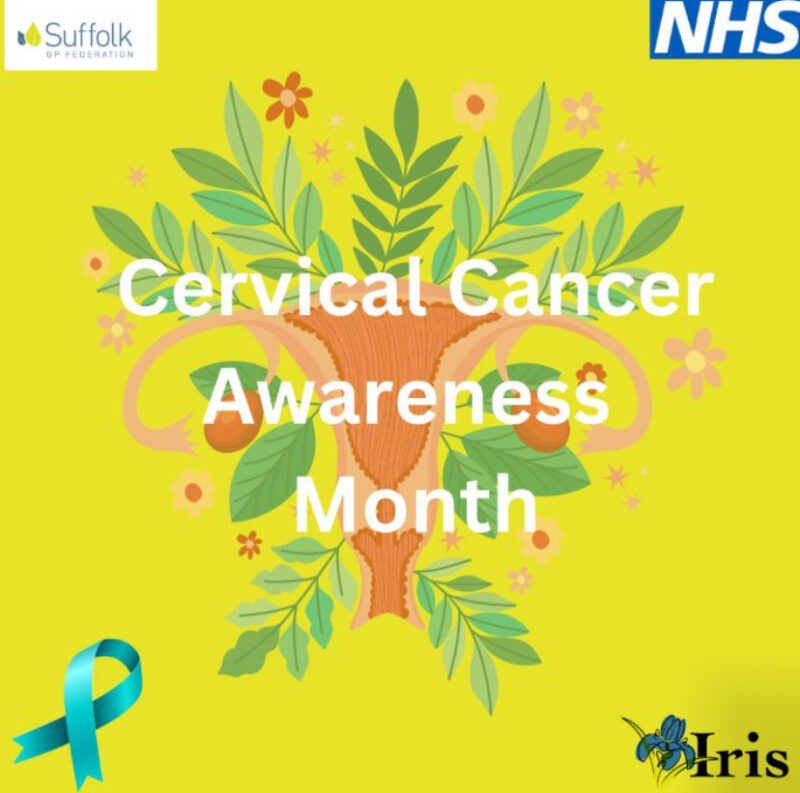
“Cervical Cancer Awareness Month: A Call to Action.
Cervical cancer is one of the most preventable and treatable cancers – yet it remains a significant health challenge, especially in low- and middle-income countries (LMICs).
January, Cervical Cancer Awareness Month, is the perfect time to amplify the conversation about prevention, early detection, and equitable care.
Why Do We Advocate for Awareness?
Despite being highly preventable, cervical cancer claims the lives of over 300,000 women globally every year.
This burden is exacerbated by barriers such as limited access to vaccines, lack of awareness, and cultural stigma around screenings.
Advocacy can bridge these gaps by:
- Promoting HPV Vaccination: The human papillomavirus (HPV) vaccine is a game-changer. It can prevent up to 90% of cervical cancer cases when administered early. However, access and education around vaccination remain inconsistent.
- Encouraging Regular Screenings: Pap smears and HPV tests are critical for early detection. Yet, in many regions, women lack access to these life-saving tools. Awareness campaigns can empower women to prioritize their health.
- Breaking Barriers: Cultural and societal stigmas often prevent women from seeking care. Advocacy helps normalize conversations about cervical health and encourages supportive community environments.
Your Role in the Fight Against Cervical Cancer.
Each of us has a part to play in raising awareness:
– Share information about the importance of HPV vaccination for adolescents.
– Advocate for accessible screening programs in underserved communities.
– Support organizations working to eliminate cervical cancer disparities.
Together, we can create a world where no woman dies from a preventable disease.
Let’s use this month to educate, advocate, and empower.”
”The protection against cervical cancer may be achieved with fewer doses of HPV vaccine.
According to recent research, using a single or two HPV vaccine doses can be just as effective in preventing severe cervical changes as three doses for girls and young women. Global efforts to eradicate cervical cancer could be significantly impacted by the findings.
Over 340,000 deaths will be caused by cervical cancer, which is the fourth most common cancer among women worldwide. Cervical cancer is a public health problem that the WHO aims to eliminate. Achieving 90% vaccination coverage among girls by the age of 15 is one of its key targets by the end of the century.
A database is used for the study that includes information on vaccinations and the incidence of high-grade cervical lesions in women aged 10-35 years from 2006 to 2022. Researchers adjusted for variables such as socioeconomic background and maternal history of severe cervical changes to ensure the results were not influenced.
Young girls who received one or two doses of the HPV vaccine before the age of 17 have been observed to have a higher risk of developing pulmonary fibrosis, according to the results. Those who took three doses had a similar risk of undergoing severe cervical changes. According to the research, there is a potential breakthrough in reducing the amount of vaccine doses needed.
According to the researchers, there is still a need for additional studies to understand the duration of protection and if a booster dose may be required in the future.”
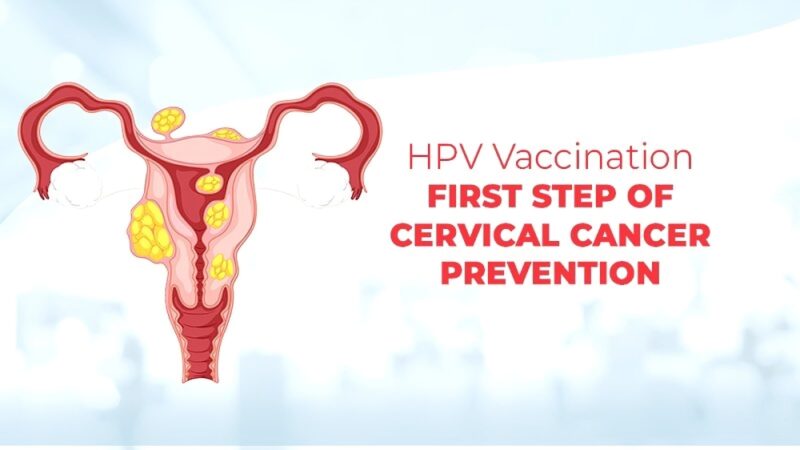
“January is Cervical Cancer Awareness Month!
A special message of Hope and Solidarity from Humanity at Heart International:
As we observe Cervical Cancer Awareness Month in January, Humanity at Heart International stands in unwavering solidarity with all those impacted by this disease.
To the courageous women and their families battling cervical cancer:
- Know that you are not alone.
- Your strength and resilience inspire us.
- We are committed to supporting you on your journey with access to quality care, emotional support, and resources.
To the survivors of cervical cancer:
- You are a testament to the human spirit’s incredible capacity to overcome adversity.
- Your journey of healing is a beacon of hope for others.
- We celebrate your strength and encourage you to continue living life to the fullest.
To the families who have lost loved ones to cervical cancer:
- We extend our deepest sympathies during this difficult time.
- Please know that your loved ones will forever be remembered.
- We are here to support you in your grief and honor their memory.
Together, we can make a difference.
Humanity at Heart International is dedicated to raising public awareness about cervical cancer, promoting early detection through regular screenings, and advocating for improved access to prevention and facilitating access to timely treatment through our community patient navigation program.
Join us in this fight.
- Spread awareness about cervical cancer prevention and early detection.
- Support organizations that provide support and resources to those affected by this disease.
- Advocate for policies that improve access to quality healthcare for all.
- Let us work together to create a future where cervical cancer is no longer a threat.”
“Today, we’re in beautiful Bonthe Island. From sightrestoring eye surgeries to lifesaving cervical cancer screening and treatment, we’re bringing sight, hope, dignity and care to the incredible people of Bonthe Island.”
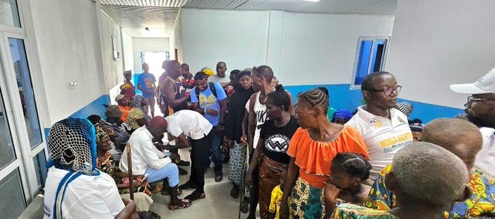
“UF Health Gynecologic Oncologist Dr Kaitlin Nicholson, nurse navigator Carol Hubbard, and coordinator Sherea Mosley, raising awareness of during cervical cancer awareness month at the UF Women’s basketball game. Such a great team with a passion for service to those in our community affected by gynecologic cancers. Go Gators!”
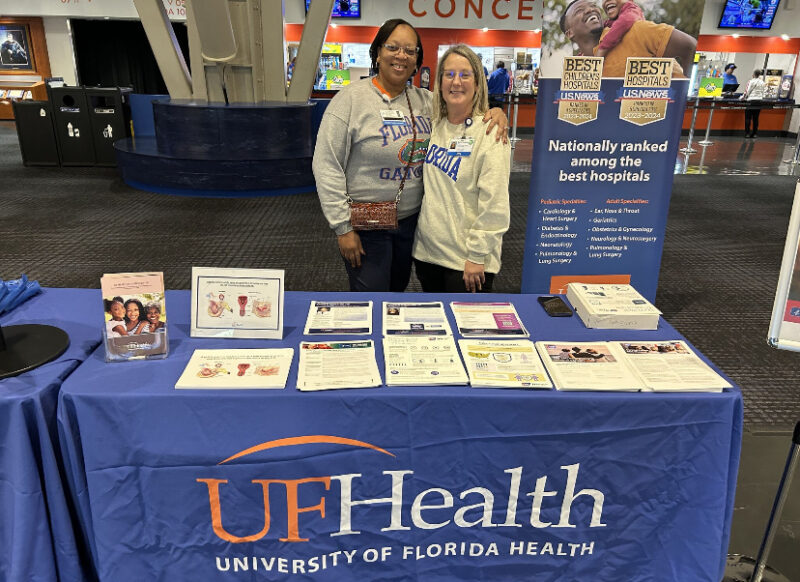
“Be the Change
Today, I took my first dose of Cervavac—a small but vital step in protecting my health and preventing cervical cancer and other cancers. Change begins with us. By taking action, we inspire others to do the same.
Our choices can spark conversations, break taboos, and encourage others to prioritize their well-being. Even the smallest steps can create ripples of change.
it always starts with you.”
NCI Center for Cancer Research:
“January is Cervical Cancer Month. HPV vaccines have been shown to prevent infection by the HPV types known to cause most cervical cancers.
Learn how research from the NCI Center for Cancer Research in the 1990s led to their development.”
